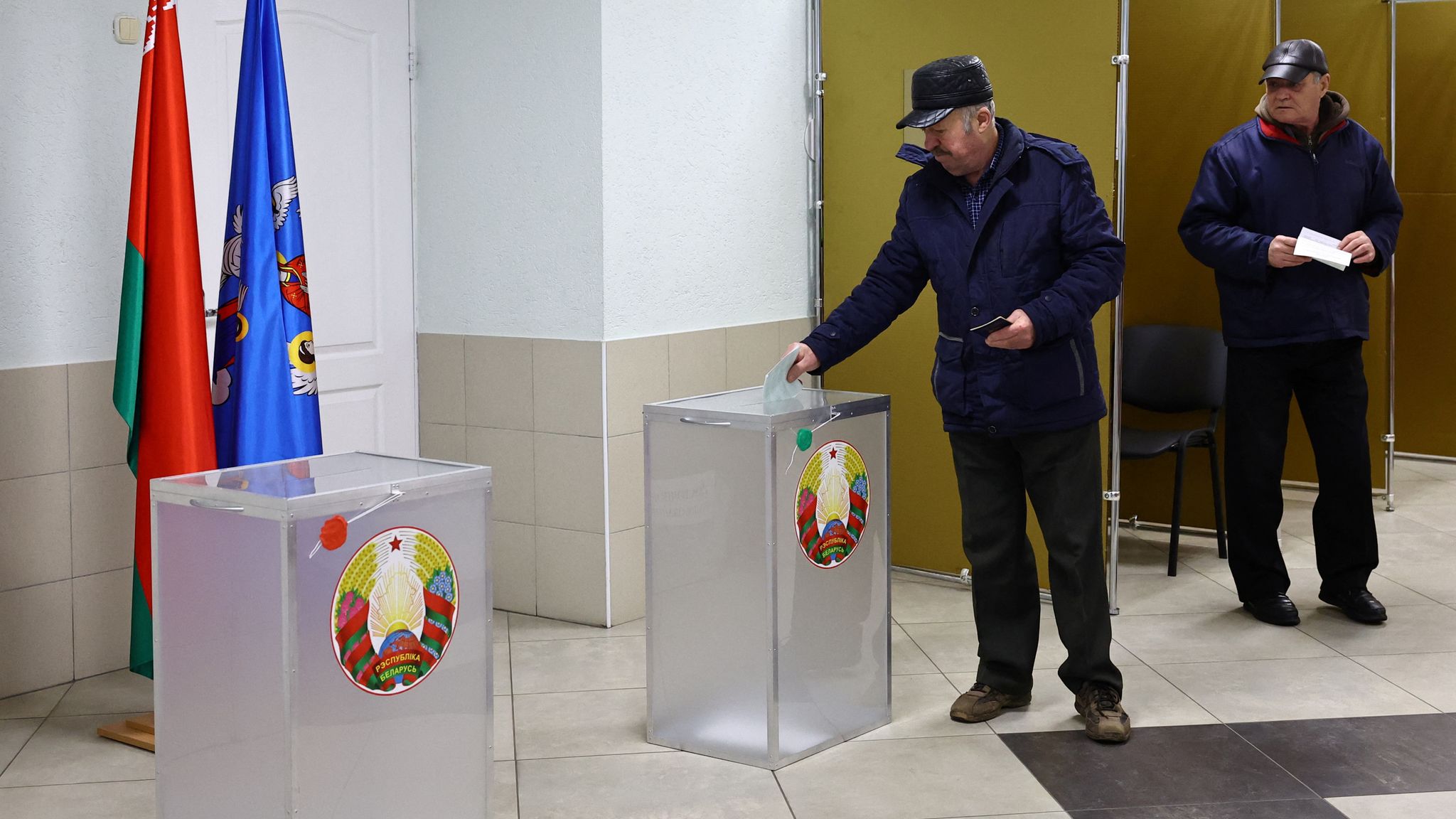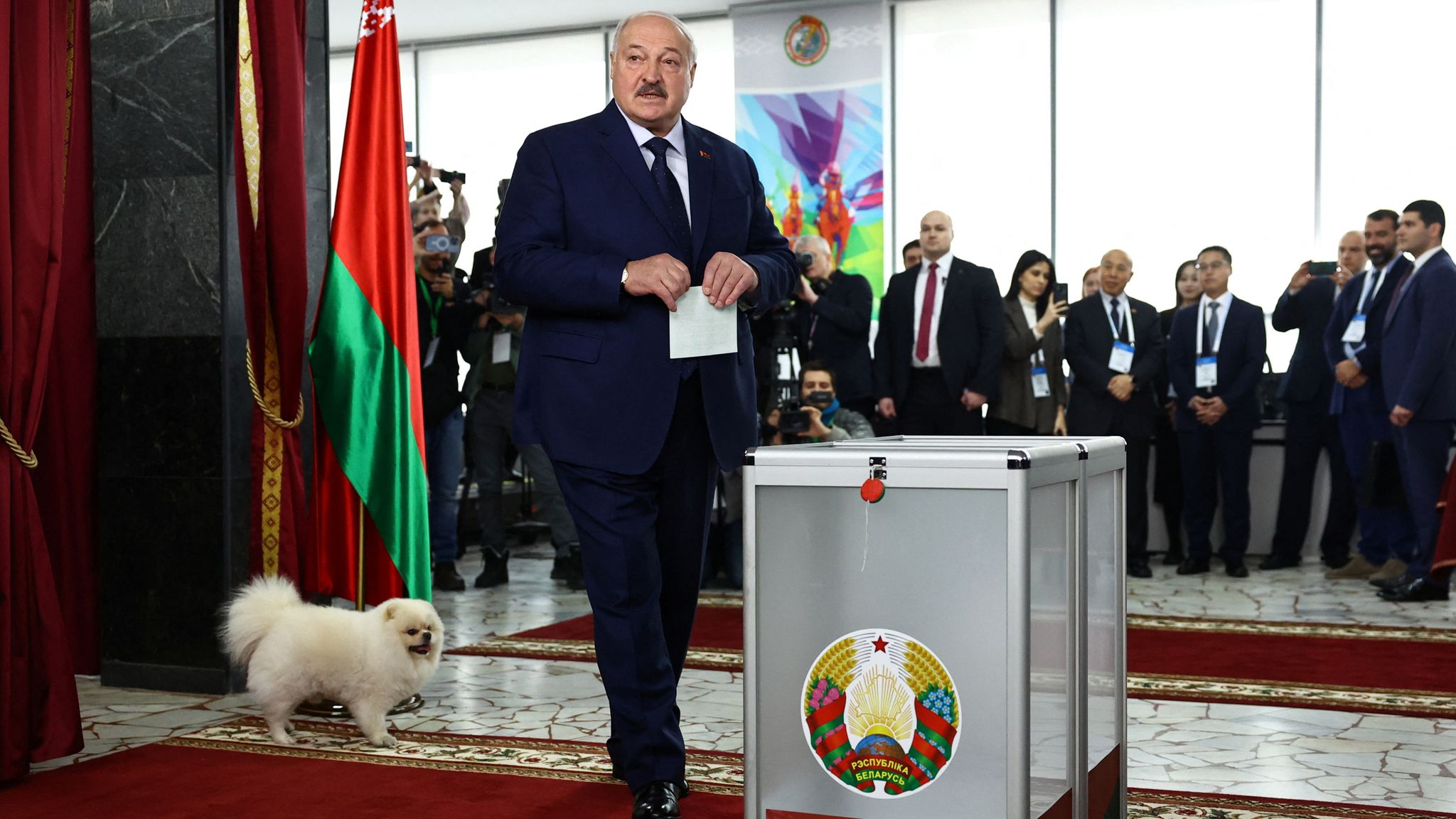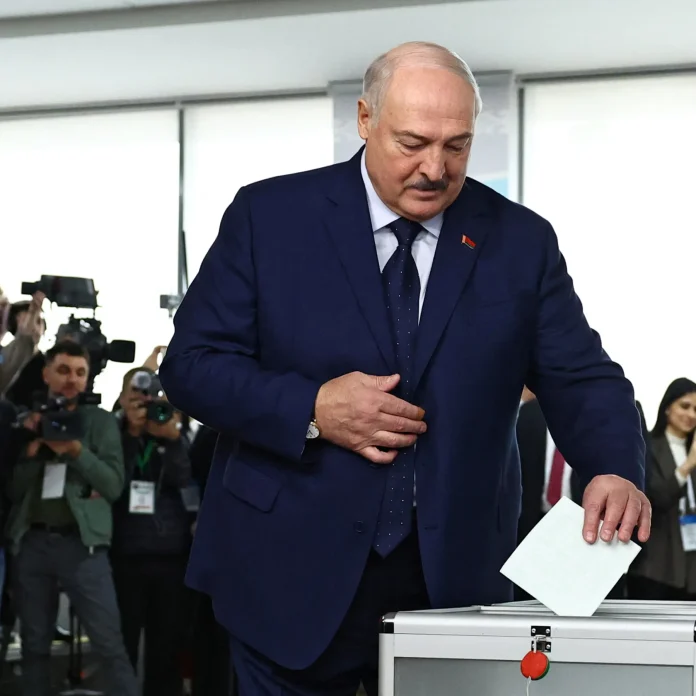Voters in Belarus have started heading to the polls for the country’s presidential election. Alexander Lukashenko, the long-serving leader, is likely to secure a seventh term, extending his 31-year rule.
A total of 6.9 million people are eligible to vote, and the polls will close at 5pm UK time. In Minsk, citizens were seen arriving at polling stations. Four opposition candidates appear on the ballot. However, they all support Lukashenko and praise his leadership, leaving little room for a fair challenge. Most of Lukashenko’s genuine political opponents have either been imprisoned or forced into exile.
Election background and opposition challenges
Yesterday, Sergei Syrankov, head of the Communist Party of Belarus, referred to Lukashenko as “Bat’ka,” meaning “father,” highlighting the president’s strong hold over the country. In contrast, after the controversial 2020 election, many citizens questioned the legitimacy of the political process. Protest leaders faced arrest, and authorities forced them to leave Belarus.
The protests in 2020 erupted when allegations surfaced that Lukashenko manipulated the vote to defeat opposition candidate Sviatlana Tsikhanouskaya. The resulting crackdown led to over 65,000 arrests, with many still in prison.

Furthermore, Tsikhanouskaya, who fled Belarus, has denounced Sunday’s election as a “senseless farce” and a “Lukashenko ritual,” arguing it is not a true reflection of democratic principles.
Ahead of the 2025 elections, the government removed curtains from ballot boxes. Voters are now forbidden from taking photographs of their ballots. This new policy aims to prevent interference, responding to opposition calls for transparency during the 2020 election. Moreover, large-scale police drills took place to prepare for potential protests on election day.
Lukashenko’s strong ties to Russia amid international scrutiny
Since taking office in 1994, Lukashenko has nurtured strong ties with Russia. He has relied heavily on Russian financial and political support. This alliance deepened when Belarus allowed Russian forces to use its territory during Russia’s military operation, which seized territories in Ukraine starting in 2022. Additionally, Lukashenko agreed to host Russian tactical nuclear weapons in Belarus.
Because of this close cooperation, Lukashenko faces significant opposition from the West. Both the United States and the European Union have condemned the election. They argue that it is unlikely to be free or fair due to the absence of independent media and the arrest of opposition leaders.

Lukashenko defends his leadership
Lukashenko defended his actions in a statement following his vote. He suggested that his political opponents “chose” imprisonment after breaking the law and added that no one has been forced to leave the country.

Despite his strong claim to power, Lukashenko insists he will “quietly and calmly” transition leadership to a new generation. In the meantime, he has pardoned over 250 individuals previously described as political prisoners, perhaps to ease some criticism against him.
Experts predict that Lukashenko may use this election victory to reduce Belarus’s dependence on Russia. Artyom Shraybman, a Belarus expert at the Carnegie Russia and Eurasia Centre, believes that Lukashenko could initiate talks with the West in an attempt to alleviate sanctions. This would signify a shift in Belarusian foreign policy as Lukashenko balances his relationship with Russia and the international community.
